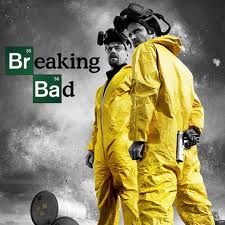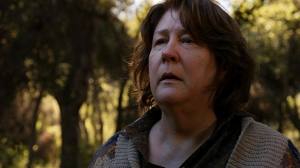• MOVIES, BOOKS, VIDEO, TRANSMEDIA, PREDICTIONS & MORE: My Weekly Round-up of Links
 Thursday, December 8, 2011 at 3:28 PM by
Thursday, December 8, 2011 at 3:28 PM by  Nick DeMartino
Nick DeMartino It’s the end of the year, and I’ll be unfurling my favorite TV, films, software, and books of 2011 in a series of posts, beginning with television, here.
Speaking of lists, one of the most informative movie lists is from the BFI’s Sight and Sound, which polls 100+ critics to come up with the top movies. But the real fun are the critical commentaries that follow the main chart, where I discover lots of gems that I would otherwise never know about.
MOVIES: Speaking of movies, I for one can’t wait for the international coproduction of David Mitchell’s complex novel CLOUD ATLAS, which I just read. Evidently, the production financing may be as big a story as the ambitious movie itself, according to this report from the NY Times.
Meanwhile, Hollywood studios continue to roll out digital access to more movies via the UltraViolet “locker” project, with Sony releasing its first U.S. titles, and Warners expanding to the U.K.
PUBLISHING: Over in the disrupted world of books, Hachette tells the world why publishers are relevant in today’s digital ecosystem via a leaked memo, drawing a quick response from one J.A. Konrath, a successful self-published author. Makes for interesting jousting.
I learned more from a GigaOm post that shows how publishers have given “Amazon a stick to beat them with” by insisting upon DRM that locks readers into the Amazon walled garden.
VIDEO: Online video viewing has crossed the threshold of 50% of the U.S. population this year, according to eMarketer.
Beleaguered Netflix CEO Reed Hastings, on the offensive after a couple of brutal quarters, predicts that 50% of TV viewing will be on the web in ten years. He also announced that Netflix will stream more than one billion hours of video in Q4 of 2011.
The web was abuzz with news and leaks about a planned streaming video competitor to Netflix from Verizon, which will team up with RedBox.
Machinima.com, an online video site featuring (what else) Machinima videogame content, has hit an amazing one billion monthly views, according to my old pal Allen DeBevoise. While the gamer niche is certainly an aspect of the success of the site, the larger implication to me is the success of ultra-niche video programming channels. Machinima will be of the 100-plus new YouTube partner channels that will begin rolling out in 2012, much as cable introduced “vertical” programming back in the ‘80s.
Microsoft made news with a major upgrade of the Xbox 360 platform, adding functionality and content partners and prompting this love letter post on Paid Content, which coins yet another term: “engaged TV.”
TRANSMEDIA: Two deep and thoughtful posts went up from leaders in the transmedia storytelling movement. First, check out part one of Gunther Sonnenfeld’s piece about evolving investment strategies in emerging media markets.
The second, from Conducttr founder Robert Pratten is a great post about “engagement-driven” narrative design.
PREDICTIONS: The New York Times published a killer interactive feature on the history and future of computing. A timeline dating from 1617 lays out key discoveries in computation, AI, Transportation, Lifestyle and Communications, and then invites users to submit their own predictions. You can also amend the predictions, which in effect constitutes a form of crowd-sourced prediction. It’s fun!
The Personal Computer is Dead, by Harvard’s Jonathan Zittrain, is a jeremiad against vertical integration and walled gardens (Re: Apple).
This Business Insider’s post, entitled “The Death of Television May Be Just 5 Years Away,” is bound to send shock waves through some of my clients, as it cites various cracks in the current model.
That's it for this week. Follow me on Twitter (@nickdemartino) for daily doses of info, or subscribe to the newsletter on my site to get updates directly to your inbox.
 critics,
critics,  lists,
lists,  movies,
movies,  predictions,
predictions,  television,
television,  video in
video in  Hollywood,
Hollywood,  Internet,
Internet,  NGIF,
NGIF,  Video,
Video,  books,
books,  future,
future,  history,
history,  lists,
lists,  movies,
movies,  studios,
studios,  technology,
technology,  television ,
television ,  transmedia
transmedia  Print Article
Print Article 
